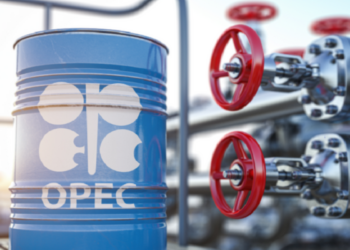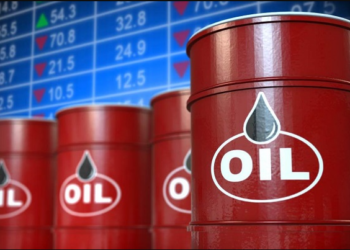The International Energy Agency (IEA), in its latest monthly report, expects the coronavirus disease to erase almost a decade of oil demand growth in 2020, with countries around the world effectively having to shut down in response to the pandemic.
The report said that oil demand in April was expected to decline by 29 million barrels per day, when compared with the same period in the previous year.
(READ MORE: Banks that hedged against 2020 Oil price crash)
In view of this, it is obvious that the scale of the oil crisis has defied the efforts of OPEC+ and other oil-producing countries, as the idea of production shutdown is moving towards reality.
In Nigeria, the country’s headline crude, Bonny light, is a little over $18 per barrel, while the Brent crude just rebounded to about $25 per barrel. Due to low oil demand and increasing unsold cargoes of crude oil, the Bonny light crude was earlier sold for a discounted price of less than $10 per barrel.
In the meantime, oil-producing firms in the country have applied some measures in order to mitigate the impact of the shocks. These include staff reduction, downward review of contracts with oil service firms, working at reducing production cost, and so on.
However, these measures appear inadequate, as the global oil demand needs to improve. Crude also needs to start selling for between $35 and $40 per barrel in order for these companies to stay in business.
(READ MORE: Nigeria’s bonny light crude price falls below Brent crude, WTI)
The Nigerian National Petroleum Corporation (NNPC), through its spokesman, Kennie Obateru, in his interaction with the press some days ago, disclosed that the oil firms may consider shutting down production if the situation persisted.
He said the firms could not keep producing without a market to sell. This, coupled with filled up storage capacity and prices below the cost of production, make it unsustainable for the oil firms to keep producing.
In a related development, CNBC reported that Goldman Sachs, in a note to investors, pointed out that the market is expected to test the global storage capacity in the coming weeks and will likely create more volatility with more spikes to the downside. This is because there will be nowhere to store the oil, thereby leaving no other option but a shutdown in line with the expected demand losses.
READ ALSO: FG battles 6 oil firms for failure to remit N20 trillion
Similarly, an energy expert, Damola Adegun, admitted to Nairametrics that the market conditions could really be unfavourable. However, he clarified that the shutdown will not be automatic, as there were two conditions under which the shutdown could occur. Damola said:
“There are two ways that the shutdown can happen; these are voluntary shutdown or government sanctioned shutdown. The voluntary shutdown is basically if the extra low prices persist for a long time (that is 5 to 6 months). Then, you will see oil companies shut down some wells because of the high cost of keeping them.”
Going further on that, he said, “On the short run, they will not shut down because of cash flow and also because there is no bankruptcy pressure. Some of them will still try to stay alive just to meet one or two needs.
“For the government-sanctioned one, it will be mostly to comply with the pledges made to OPEC. The way they will do that is mostly by curtailing people from the production.”
Meanwhile, in the short run, the only shut-in that is likely going to happen is the government-sanctioned one which is OPEC induced output cut that is expected to kick in by May 1, 2020. The oil-producing companies will consider the voluntary option if the very low oil prices and high cost of production persist.
READ MORE: Oil Firms risk a shut-down if they don’t reduce production cost
Recall that the coronavirus pandemic has led to a global economic crisis and an unprecedented slump in oil demand. This is crippling the oil industry, threatening its growth and even existence.
The historic low oil demand stems from the lockdown of households, businesses, and factories, as well as travel restrictions, which are all part of measures aimed at containing the spread of the coronavirus pandemic.
The crisis is further compounded by the global oil storage crisis; unsold oil inventories keep piling, and storage facilities are filling up fast in the midst of global supply glut. In fact, some days earlier, the American WTI was sold below zero dollars per barrel— meaning that the oil traders had to pay to get the crude off their hands.
The Organization of Petroleum Exporting Countries and its allies (OPEC+) and some top oil-producing countries, in a deal brokered by the US President Donald Trump, agreed to output cuts that could rise to almost 20 million barrels of crude oil per day.
However, these cuts have not had the desired impact on global oil prices, as the slump still continues. Analysts suggested that the action by these oil producers came late. They also painted a gloomy picture, explaining that the output cut is just a fraction of the solution to the decline in oil demand.
























Motorists in particular have been ripped off by oil companies for many years. I won’t be shedding any tears for them, poetic justice.